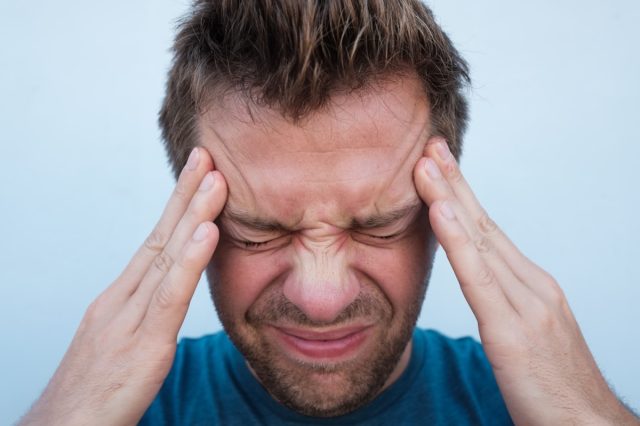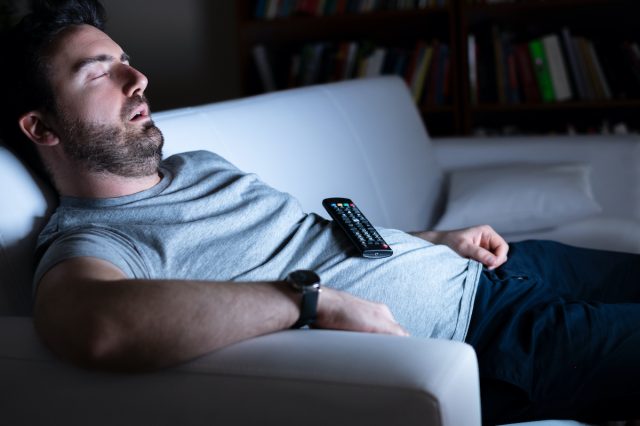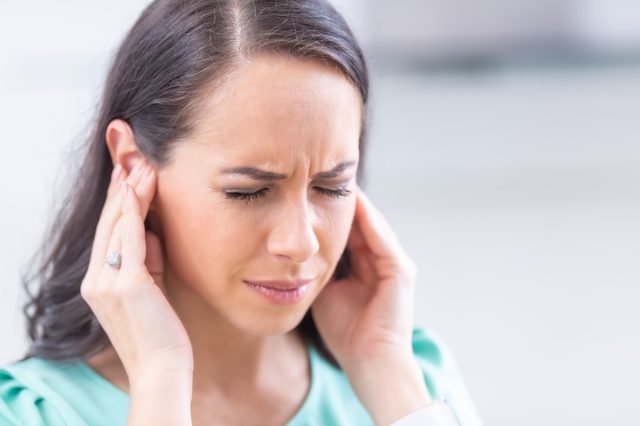Ashton Kutcher Reveals He's "Hard of Hearing"—Here are the Warning Signs of Hearing Loss

Ashton Kutcher's recent battle with a rare form of autoimmune disease has left him with hearing issues—which can make red carpet events tricky. "I can't hear very well, I'm hard of hearing in one ear and I can only hear in the other," he said. "I don't know who's yelling my name but I know there's a lot of people yelling, 'Reese! Ashton! Over here! Look this way!' And at a certain point you're like, God this is really something. Look at the camera? Got it. Are we done? Awesome."
Kutcher previously explained the illness left him bedridden. "I had this weird, super rare form of vasculitis that knocked out my vision, it knocked out my hearing, it knocked out like all my equilibrium," Kutcher, 45, says. "It took me about a year to build it all back up. You don't really appreciate it until it's gone. Until you go, 'I don't know if I'm ever going to be able to see again, I don't know if I'm ever going to be able to hear again, I don't know if I'm ever going to be able to walk again.' I'm lucky to be alive."
Vasculitis is an autoimmune disorder where inflammation of blood vessels causes them to narrow and restrict oxygenated blood supply, resulting in pain and tissue damage, and possible organ malfunction. "[People with vasculitis] often have fevers, weight loss, fatigue, a rapid pulse, and diffuse aches and pains that are difficult to pinpoint," according to Johns Hopkins Vasculitis Center. "It has been said that vasculitis is a 'hurting disease', because it is so commonly associated with pain of one type or another: pain from a nerve infarction, pain from insufficient blood to the gastrointestinal tract, pain from skin ulcers."
Hearing loss can happen for many reasons—understanding the warning signs can be key to effective treatment. Here are five signs to be aware of, according to experts.
Difficulty Understanding Speech

Difficulty following speech (especially consonants) is one of the earliest signs of hearing loss.
"When you lose enough hair cells, it begins to affect your hearing," says Sujana Chandrasekhar, MD, a partner at ENT and Allergy Associates in New York and New Jersey. "For men, hearing loss often starts in the mid-50s. Women, whose hearing may get some protection from female hormones, are usually affected by their early to mid-60s."
Losing the ability to hear high-frequency sounds is a warning sign, according to Dr. Chandrasekhar. "When you can hear vowels but not consonants, it sounds like people aren't speaking clearly, so it's easy to blame them." This includes talking on the phone. "Usually, sound is going in both ears, but when you're talking on the phone it's only going in one, which makes it more difficult — especially if you hold the phone to the ear that has more hearing loss."
Memory Issues

Short-term memory issues are another sign.
"It's difficult to remember things you don't hear clearly," says Angela Shoup, a professor in the Department of Otolaryngology and chief of the Division of Communicative and Vestibular Disorders at the University of Texas Southwestern Medical Center in Dallas.
"And when you're struggling to understand what someone is saying, it taxes your short-term memory. Our minds clump information together to make it easier to remember. But people with hearing loss miss lots of sounds, so they have to hold all these random bits and pieces in their short-term memory until they can fill in the blanks to make sense of a sentence."
The TV Is Too Loud

Needing high volume on the TV could be a sign of hearing loss. "Whether you're watching TV, listening to music or talking on the phone, you might think the noise level is perfectly normal until others inform you the volume is too high," says Dr. Hilary Steele, Au.D. "Obviously, some people are bound to have more sensitive hearing, but when several people tell you the same thing in a variety of situations, there's a good chance that you could be struggling to hear. If your family, friends and coworkers have voiced the opinion that you talk too loudly and your music and television habits follow suit, it may be time for a hearing test."
If the TV is on and someone is trying to speak to you, or you're in a crowd and struggling to follow a conversation, it may be a warning sign of hearing loss. "One of the first signs that you're suffering from hearing loss is when you have difficulty following a conversation in crowds," says Dr. Steele. "If you often have trouble differentiating between who's speaking to you in a noisy environment, you could be in the early stages of hearing loss."
Do You Have Tinnitus?

Tinnitus and hearing loss are linked, experts say. "In truth, tinnitus is not necessarily a symptom of hearing loss, but the two often go hand in hand, especially if hearing loss is related to noise damage," says Dr. Steele. "If you notice ringing in your ears, you'll want to get it checked out by a hearing care professional. You should also take the opportunity to get a hearing test, just in case you have both conditions."
"Ninety percent of those with tinnitus have hearing loss," says audiology researcher Gayla Poling, PhD. "Those little hair cells in our inner ear are really delicate structures. That's what is actually damaged with noise exposure."
Loss Of Balance

Our hearing and balance are directly linked—so any unexplained clumsiness or lack of balance could be a sign of hearing loss. "Your hearing health is an important part of your overall health," says Dr. Meryl Miller, Au.D., Director of Clinical Audiology at the Ear, Nose & Throat Institute. "One of the many ways your hearing health affects your overall health is balance. According to a study out of Johns Hopkins, individuals aged 40-69 that had a mild hearing loss were three times as likely to report falling in the past year. And, that risk increased with poorer hearing."
"A major focus of physical therapy when treating anyone with a balance disorder is to directly stimulate the patient's visual system, muscular system, and the balance system located within their inner ear," says Jose Crespo, PT. "These three systems provide simultaneous sources of information to your brain that then helps your body stay upright and control itself well without feeling disoriented, dizzy, or nauseous. The smallest of challenges placed on these three systems can result in strong balance reactions if any one of these systems are weak."




